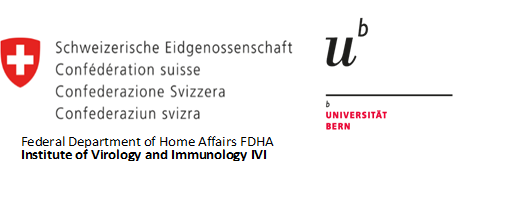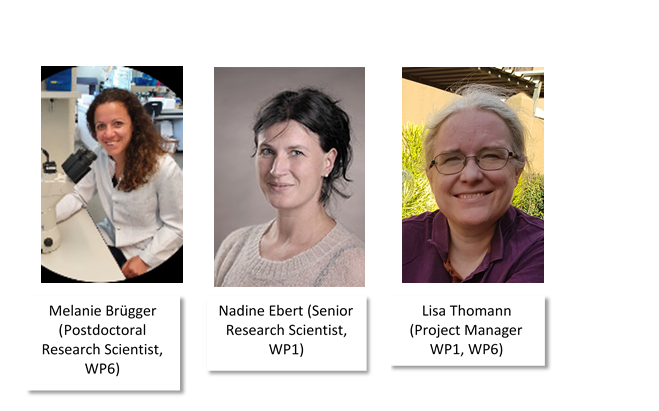March 28th 2024
Introducing The Institute of Virology and Immunology (IVI) – a CARE academic organisation
Introducing The Institute of Virology and Immunology (IVI) – a CARE academic organisation

In 1917, Swiss laws on epizootics were drawn up to combat foot-and-mouth disease effectively. In response, the Swiss Confederation built the Federal Vaccine Institution in 1942. In 1992, the institute was renamed to Institute of Virology and Immunoprophylaxis and moved to a new facility with a high containment laboratory in Mittelhäusern, approximately 15km from Bern. Since 2014, a merger with the Institute of Veterinary Virology at the Vetsuisse faculty led to the current Institute of Virology and Immunology (IVI). The connections to and involvement in the Vetsuisse Faculty are coordinated through a formal cooperation. Within the Vetsuisse Faculty, the IVI is associated with the Department of Infectious Diseases and Pathobiology.
The IVI is Switzerland’s reference laboratory for the diagnosis and research of highly infectious epizootic diseases, including viral zoonoses. The IVI reports to the Federal Food Safety and Veterinary Office (FSVO) within the Federal Deparment of Home Affairs (FDHA) of Switzerland. With its research in virology and immunology the IVI strives to develop solutions to combat and control viral diseases, for example African swine fever, Influenza viruses, bovine virus diarrhea virus, Japanese encephalitis and other flaviviruses, coronaviruses and emerging diseases in general.
The IVI employs approximately 120 staff at its sites in Bern and Mittelhäusern. These include scientists, students and support staff (engineers and technical staff, animal caretakers, administration and biosafety). Two divisions of IVI contribute to CARE. The team of Prof. Volker Thiel specialise in respiratory and enteric viral infections and zoonoses. The team of Prof. Charaf Benarafa are experts in molecular, cellular and in vivo pathways of innate immune responses in infectious and inflammatory disease

Why did IVI choose to get involved in CARE?
IVI decided to get involved with CARE primarily through the involvement in the SCORE project of which IVI were one of the core eight partners. All 8 partners from SCORE are also in the CARE consortium. Secondly, the Thiel team has more than 25 years of experience of working with coronaviruses, so the opportunity to combine efforts with the Benarafa team was a possibility that could not be missed due to their considerable expertise in dissecting the immune response using infectious disease models.
What has IVI delivered for CARE?
IVI’s achievements in CARE includes the production of fluorescent viruses in Work Package 1 (WP1) which were pivotal in the development of a high-throughput dual-reporter screening assay for antiviral drug discovery. This was possible due to the close collaboration with the team of Pieter Leyssen in KU Leuven (DOI: 10.1016/j.antiviral.2022.105506). Second, the IVI team also made a series of mutant viruses incorporating changes implicated in drug-resistance. This was done with the team of Dirk Jochmans from KU Leuven also within the context of WP1 (doi.org/10.1128/mbio.02815-22). In WP6, the IVI has contributed considerably by developing animal models for testing the efficacy of antivirals developed in the drug pipeline of the CARE project.
For more information about the different work packages, please click here
What benefits has IVI enjoyed through participating in CARE?
Both the Thiel and Benarafa teams have been able to broaden their networks, which have led to the instigation of a new EU-funded project to develop broad acting antivirals against RNA viruses with pandemic potential (PanViPrep), which began at the start of 2024. Other collaborations have also started with CARE colleagues working on other coronaviruses (including Feline Infectious Peritonitis). Undoubtedly, these opportunities have been facilitated through our participation in the CARE project.
In addition to Volker and Charaf, the IVI team includes

And Bettina Trüeb (Postdoctoral Research Scientist, WP1)
Want to know more about IVI?
